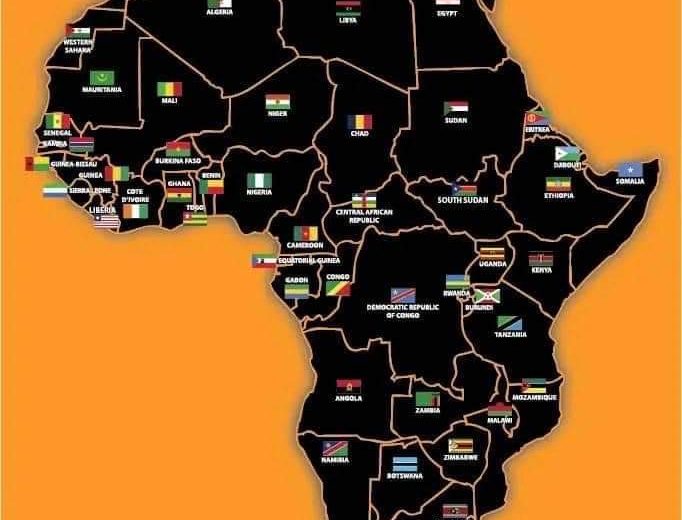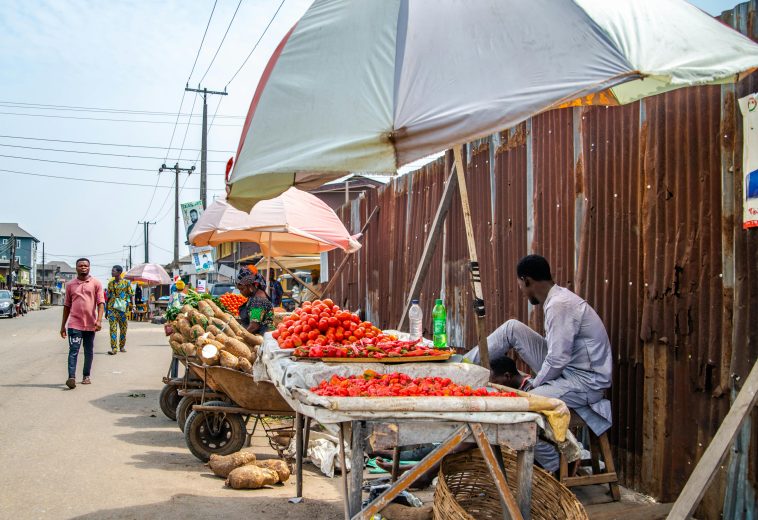At this pivotal moment, the African Union (AU) is entrusted with guiding a dynamic and diversified continent toward shared prosperity in the future. The AU has placed a greater emphasis on incorporating young voices into its institutional structure as a result of realizing the unquestionable vitality and potential of its youthful population. In exploring the changing terrain of youth leadership in the African Union, this article carefully examines the contributions made by each of the organization’s five regions: West, East, South, North, and Central Africa.
It looks at the difficulties these young leaders have faced, recognizes their successes, and looks forward to a day when their full potential will be realized.
West Africa: A Rich Source for Up-and-Coming Voices
Aya Chebbi: a Tunisian, was the first African Union Youth Envoy from 2018 to 2022. She was a strong proponent of youth development and inclusion and encouraged communication between young Africans and leaders throughout the continent. She pushed for more people to participate in decision-making, opening the door for a more inclusive AU.
Aïssata Sidikou Issa (Niger): Currently serving as the AU Youth Envoy, is leading the charge by emphasizing the involvement of young women in peace and security activities. Her work serves as an excellent example of the critical role that young women play in sustainable development and conflict resolution, especially in the Sahel region.
Fatoumata Sissoko (Mali): Sissoko is a prime example of the effectiveness of grassroots organizing. She founded the Mali Youth Parliament. She encourages young people to participate in governance and holds the government responsible for prioritizing youth development initiatives.
East Africa: Initiators of Transformation and Entrepreneurship
Vanessa Nakate, an activist from Uganda who spearheaded the Fridays for Future Uganda movement, has become a formidable voice advocating for environmental justice and climate action. Her steadfast dedication encourages young Africans to take on environmental issues head-on. It serves as a constant reminder to everyone that those who fight for it will own the future.
Victor Ochieng: As Africa’s Commonwealth Youth Ambassador for 2022, Ochieng is committed to advancing business and social change. In recognition of the crucial role that young Africans play in creating a thriving continental economy, his work promotes financial inclusion and economic development for them.
Yohana Abdallah: She founded “Vijana Mabadiliko” and actively engages Tanzania’s youth in political and peacebuilding processes. His actions show the power of youthful leaders in fostering peaceful communities by bolstering democratic institutions and lowering political violence.
South Africa: Pushing Limits and Questioning Conventions
Mbali Ntuli: Co-founder of “Shades of Black” Mbali Ntuli addressed the important problem of young South Africans’ lack of understanding about mental health. She actively works to dispel the stigma associated with mental health and gives young people the confidence to ask for help, which promotes a more inclusive and healthy society.
Kumi Naidoo: A guide and inspiration to young African environmental campaigners, Naidoo was formerly the Executive Director of Greenpeace International. In order to ensure that the views of future generations are heard, he highlights the importance of youth in driving environmental justice projects and holding institutions accountable.
North Africa: Overcoming Divisions and Encouraging Self-determination
The founder of “Yabiladi Maghreb,” Mariem Guirat (Morocco), works to dismantle historical barriers and promote interfaith understanding and discussion between young Muslims and Christians in the Maghreb region.
Amani El Weshahi is the pioneer of the “Girl Effect” initiative in Egypt, empowering young girls and women by enhancing their education and developing their talents so they may take an active role in the social and economic arenas.
Her efforts help eliminate gender disparities and enable young Egyptian women to reach their full potential.
Hamza El Fadaly encourages young Libyans to develop bridges across political groupings and societal differences in order to promote peace and reconciliation in Libya. His initiatives serve as a reminder that, even in communities where there is constant conflict, youth can be effective peacemakers and healers.
Central Africa: Handling Disagreement and Promoting Ecological Responsibility
The “Youth Empowerment Action Network’s founder, Achile Nzobimalum (Cameroon), dedicates his life to advancing peacebuilding and conflict resolution in the country’s conflict-affected areas. He gives youth the tools they need to become change agents and actively participate in long-term initiatives to promote peace and reconciliation.
Sandra Ngombe is a proponent of better access to high-quality education for girls in the Democratic Republic of the Congo. Her work encourages young girls to reach their full potential and confronts ingrained gender disparities.
Challenges and the Future of African Union Youth Leadership
While the aforementioned evaluation emphasizes the noteworthy accomplishments of youthful leaders throughout the African Union, they have faced challenges along the way. Unlocking the full potential of youth leadership in the AU requires acknowledging these obstacles and devising strategies to overcome them.
Challenges:
Restricted Funding: A lot of young leaders have trouble raising money for their projects, which makes it difficult for them to expand their influence and reach new populations. Conventional funding sources frequently give preference to well-established companies, which leaves junior executives with less money.
Inadequate Mentorship and Training Program Access: Young leaders frequently do not have access to training programs that give them the expertise and knowledge they need to handle challenging situations and lead successfully. Additionally, they have limited options for professional development in terms of mentoring from seasoned leaders and specialists.
Persistent Patriarchy and Discrimination: Gender, race, and sexual orientation continue to be major impediments due to systemic disparities. It can be particularly difficult for young women and members of underrepresented communities to get support and acknowledgment for their projects.
Restricted Entry to Decision-Making Mechanisms: Young leaders still have few opportunity to actively engage in decision-making processes, despite the AU’s best efforts. This makes it more difficult for them to have an impact on programs and policies that directly affect their communities.
The Way Forward
Invest in Youth-Led Initiatives: Provide grants and scholarships to young people to help with their project development, and set aside specific financial sources for them. Promote public-private collaborations and involve the diaspora in youth development initiatives.
Create Platforms for Knowledge Sharing and Mentoring: Establish formal mentorship programs that pair up aspiring leaders with knowledgeable and seasoned individuals. Encourage young leaders to collaborate through peer-to-peer learning networks to exchange insights and best practices.
Encourage Inclusion and Resolve Inequalities: Activate young women and members of underprivileged communities, offering them specialized resources and assistance in overcoming obstacles. Run capacity-building seminars and awareness initiatives to combat discriminatory practices in the AU and in society at large.
Encourage Young People to Take Part in Decision-Making: Provide official channels through which young leaders can take part in AU debates and decision-making. Establish youth advisory councils or parliaments within AU institutions, and urge member nations to follow suit at the municipal and national levels.
Leverage Technology and Innovation: To promote cooperation and information exchange among young leaders around the continent, make use of digital tools and platforms. Encourage youth-led projects that use technology to solve urgent issues that African communities are facing.
To fully realize the potential of young leadership within the African Union, a multifaceted strategy that tackles current issues and gives young leaders the tools they need to make significant contributions is needed.
The AU can become a potent force for good on the continent by supporting their activities, encouraging their growth, and making sure their opinions are heard at the tables of decision-making. Africa’s youth hold the key to its future, and we must provide them with the resources and encouragement they require to create a more promising future.


